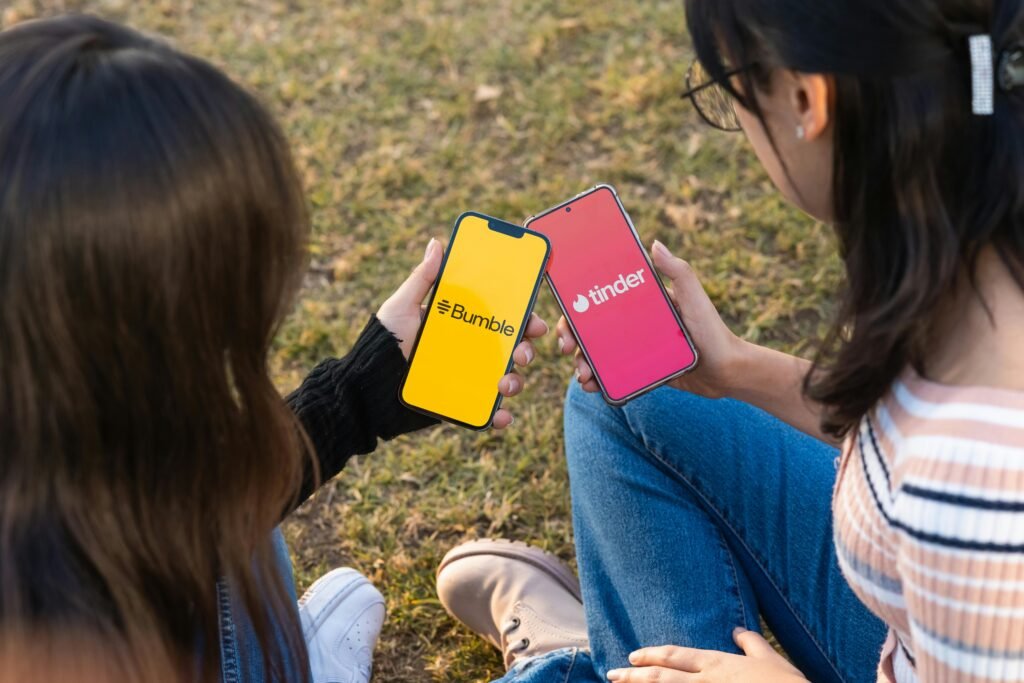
Introduction to Successful Dating
Dating these days can feel like navigating a maze.
Whether you’re swiping right on dating apps, scrolling through dating sites, or even meeting someone the old-fashioned way, the goal remains the same: to find someone who clicks with you.
But let’s face it, successful dating isn’t just about luck. It’s about knowing what you want and putting in a bit of effort.
First off, don’t underestimate the power of self-awareness.
Knowing who you are and what you’re looking for can save a lot of time and heartache.
When you’re clear on your values and goals, it’s easier to spot someone who aligns with them.
Next up is communication. Seriously, it’s huge.
Being able to talk openly and honestly with someone is key.
It’s not just about talking but also about listening.
Really hearing what the other person is saying helps build trust and understanding from the get-go.
And speaking of trust, it’s something that doesn’t happen overnight.
It’s built through consistent, reliable actions.
If you say you’re going to call, then call.
If you say you’re going to show up, then show up.
Simple as that.
Balancing independence and togetherness is another biggie.
While it’s awesome to spend time together, it’s equally important to have your own interests and hobbies.
It keeps things interesting and helps you grow both as a couple and as individuals.
Handling conflicts gracefully is also a must. Disagreements will happen, but how you handle them makes all the difference.
Focus on resolving issues calmly and constructively.
Instead of playing the blame game, look for solutions that work for both of you.
Lastly, keep the fun alive.
Make time for activities you both enjoy.
Whether it’s a spontaneous adventure or a cozy night in, shared experiences bring you closer.
So there you go, a few tricks to help you on your dating journey. Apply these, and you’re more likely to find a meaningful and lasting connection.
Understanding Yourself First

Before jumping into dating, it’s super important to know yourself and what you’re looking for.
This is where self-awareness comes in handy.
By identifying your goals and desires, you can better align your dating efforts with what truly matters to you.
Start by reflecting on past relationships.
What worked? What didn’t? Knowing your likes and dislikes helps you understand what you need in a partner.
Jot down a list of must-haves and deal-breakers.
This keeps you focused and prevents you from getting sidetracked by temporary attractions.
Another key aspect is understanding your values.
What’s important to you? Maybe it’s family, career ambitions, or personal growth.
When your values match up with someone else’s, it’s easier to build a strong and lasting connection.
Next, be clear on your relationship goals.
Are you looking for something casual or are you ready for a long-term commitment?
Setting clear intentions helps you communicate better with potential partners and saves everyone time.
Personal growth is also crucial.
Spend time working on yourself.
Pick up new hobbies, invest in self-care, or take courses that interest you.
Being the best version of yourself makes you more confident and attractive.
It’s also helpful to be emotionally available.
If you’re still hung up on an ex or dealing with unresolved issues, it’s harder to form new connections.
Take the time to heal and ensure you’re ready for something new.
And remember, self-awareness isn’t just a one-time thing. It’s an ongoing process.
As you grow and evolve, so will your needs and desires.
Stay in tune with yourself, and you’ll be better equipped to find someone who complements you.
So, before you dive into the dating pool, take a moment to understand yourself first.
It makes the journey smoother and the destination that much sweeter.
Effective Communication

Effective communication is crucial for a successful relationship.
Open and honest conversations lay the foundation for trust and understanding.
However, it’s important to note that 65% of people feel that the increased focus on sexual harassment and assault in recent years has made it more challenging for men to navigate interactions during dates.
To foster better communication, practice active listening.
This means giving your partner your undivided attention and genuinely being interested in what they’re saying.
Nodding along and making eye contact can go a long way.
Avoid interrupting or thinking about what you’re going to say next while they’re talking.
Next, be clear and direct about your feelings and needs.
Be honest without being hurtful.
If something bothers you, mention it calmly and constructively.
This way, you address issues before they turn into bigger problems.
Use “I” statements instead of “you” statements to express how you feel.
For example, say “I feel upset when…” instead of “You make me upset when…”. This keeps the focus on your feelings rather than blaming the other person.
Body language also plays a big role in communication.
Pay attention to non-verbal cues like facial expressions, gestures, and posture.
They can tell you a lot about how your partner is feeling, even if they’re not saying it out loud.
Timing matters too. Picking the right moment to have important conversations is key.
Avoid bringing up serious topics when either of you is tired or stressed.
Find a time when you can both give the conversation the attention it deserves.
Another tip is to be empathetic. Try to see things from your partner’s perspective.
This helps you understand their feelings and makes it easier to find common ground.
Lastly, don’t forget to show appreciation.
A simple “thank you” or compliment can make your partner feel valued and loved.
Positive reinforcement can strengthen your bond and make communication smoother.
Remember, good communication is a two-way street.
Both partners need to put in the effort to talk and listen effectively.
Building Trust

Trust is all about showing up and being real with each other.
Consistency and honesty go a long way in making sure your partner feels secure.
Because of this, it’s super important to make sure your actions back up your words.
If you say you’re going to call, make that call.
If you promise a date night, follow through.
Little things like this help build a solid foundation.
Being transparent is another key element.
Share what’s on your mind, your plans, and even your worries.
It doesn’t mean you have to spill all your secrets right away, but being open about your life helps build trust.
Avoiding secrecy and half-truths is crucial because once trust is broken, it can be hard to repair.
Another tip: be reliable. If your partner can count on you, it creates a sense of stability in the relationship.
Show up when you say you will, and do what you say you’re going to do.
It might seem simple, but reliability is super important in building trust.
Don’t forget about vulnerability.
Opening up and sharing your feelings, fears, and dreams can be scary, but it also brings you closer.
When you’re vulnerable, it encourages your partner to do the same, creating a deeper connection.
Respect also plays a big role.
Respect your partner’s boundaries, opinions, and feelings. Show that you value them as a person.
This mutual respect builds a safe space where trust can grow.
Finally, forgiveness is a part of building trust too.
Nobody’s perfect, and mistakes will happen.
How you handle those mistakes matters.
If you mess up, own it, apologize, and make amends.
Learning to forgive each other helps build resilience in the relationship.
So, keep these tips in mind and put in the effort.
Trust doesn’t happen overnight, but with consistent, genuine actions, it can grow into something strong and lasting.
Balancing Independence and Togetherness

Striking that sweet spot between spending time together and doing your own thing is super important in a relationship.
You don’t want to feel like you’re glued to each other 24/7, but you also don’t want to drift apart.
It’s all about finding that balance that works for both of you.
Think of it this way: when you have your own interests and hobbies, you bring new energy and stories into the relationship.
Maybe you love yoga, and your partner is into painting.
Great! Keep doing those things.
They make you, you.
And when you come back together, you have fresh experiences to share, which keeps things exciting.
On the flip side, carving out quality time for just the two of you is key.
Plan regular date nights or simple activities like cooking a meal together or taking a walk in the park.
These moments help you bond and create shared memories.
The trick is to make sure this time is meaningful and not just going through the motions.
It’s also super important to support each other’s individual goals and dreams.
Encourage your partner to chase that promotion or take that trip they’ve always wanted.
Being each other’s cheerleader strengthens the relationship and shows you respect and value each other’s independence.
When it comes to balancing, communication is crucial.
Talk openly about how much time you want to spend together and alone.
Maybe one of you needs more solo time than the other, and that’s okay.
Just make sure you’re both on the same page and feel comfortable expressing your needs.
Another thing to keep in mind is to avoid getting too comfortable or falling into a routine.
Mix things up every now and then. Surprise each other with spontaneous plans or try out new activities together.
This keeps the relationship dynamic and fun.
And hey, sometimes you’ll get it wrong, and that’s okay.
The important thing is to keep talking and adjusting as you go.
Find that balance, and you’ll have a relationship where both of you can thrive together and as individuals.
Handling Conflicts Gracefully

Disagreements are bound to pop up in any relationship, but how you deal with them makes all the difference.
The key is to keep your cool and talk things out calmly.
Instead of getting defensive or pointing fingers, focus on finding solutions that work for both of you.
This way, you’re tackling the problem together rather than turning it into a blame game.
It helps to choose your battles wisely.
Not every little thing is worth a heated debate.
Sometimes it’s okay to let the small stuff slide and save your energy for the bigger issues.
But when something really does need addressing, make sure you’re doing it respectfully.
Timing is crucial, too.
Bringing up serious topics when either of you is stressed, tired, or distracted is a recipe for disaster.
Find a good time when you’re both relaxed and can give the conversation your full attention.
This sets the stage for a more productive discussion.
When you do talk, stick to “I” statements instead of “you” statements.
It’s way more effective to say “I feel hurt when…” than “You always…”
This keeps the focus on how you’re feeling and avoids sounding accusatory.
Plus, it makes it easier for your partner to understand where you’re coming from without getting defensive.
Listening is just as important as talking.
Really hear what your partner is saying without interrupting or planning your rebuttal.
Show that you’re paying attention through nods and eye contact.
Sometimes, just feeling heard can make a huge difference.
Empathy goes a long way.
Try to see the situation from your partner’s perspective and validate their feelings, even if you don’t completely agree.
This creates a supportive environment where both of you feel understood.
Lastly, don’t forget the power of a genuine apology.
If you’re in the wrong, own up to it and say you’re sorry.
It’s amazing how far a heartfelt apology can go in mending fences and moving forward.
Making Time for Fun

Keeping things fun is like the secret sauce to a happy relationship.
It’s super important to carve out time for activities that you both love.
Think about the stuff that makes you laugh and brings you closer.
Maybe it’s binge-watching a new series, hitting up an escape room, or going for a hike in a nearby park.
The key is to mix it up and keep things fresh.
Try planning surprise dates.
It doesn’t have to be anything fancy—sometimes the best memories come from the simplest moments.
How about a spontaneous road trip or even a picnic in your living room?
The point is to create shared experiences that make you both smile.
Another great idea is to learn something new together.
Ever wanted to take a cooking class or learn to dance?
Doing something new can be super bonding and gives you something fun to talk about and practice.
Plus, it’s a great way to break out of the usual routine.
Game nights can be a blast, too.
Whether it’s board games, video games, or even old-school card games, a little friendly competition can spice things up.
And hey, don’t forget to let your playful side out.
Sometimes, just goofing around and being silly can bring you closer.
If you both have busy schedules, set aside specific “fun time” on your calendar.
Treat it like any other important appointment.
This ensures you both make it a priority, no excuses.
Remember, the goal is to keep things light and enjoyable.
Laugh together, be spontaneous, and don’t take everything too seriously.
The more fun you have, the stronger your bond will be.
Conclusion

Finding success in dating is all about striking the right balance and putting in some effort.
Knowing yourself, communicating well, building trust, balancing your own interests with shared time, handling conflicts gracefully, and keeping the fun alive are your go-to tricks.
Keep these in mind and you’ll be on your way to a meaningful connection.
Whether you’re using dating apps or meeting people in other ways, these tips can help you navigate the dating scene better.
So, go out there, have fun, and see where your dating journey takes you!
